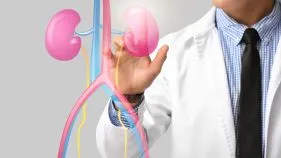
Kidney Disease Symptoms: Early Warning Signs You Shouldn’t Ignore
Kidney Disease Symptoms: Early Warning Signs You Shouldn’t Ignore
Your kidneys play a vital role in maintaining your overall health by filtering waste, balancing fluids, regulating blood pressure, and producing essential hormones. But when they begin to fail, the warning signs of kidney disease may be subtle—or even silent—until the condition becomes severe.
In this blog post, we will explore the most common kidney disease symptoms, the importance of early detection, and what steps you should take if you notice any red flags.
Understanding Kidney Disease
Kidney disease, also known as renal disease, occurs when your kidneys are damaged and cannot filter blood properly. It can develop suddenly (acute) or progress over time (chronic). Chronic Kidney Disease (CKD) is particularly dangerous because its symptoms often develop slowly and may be mistaken for other health issues.
Common Symptoms of Kidney Disease
1. Fatigue and Weakness
Healthy kidneys produce a hormone called erythropoietin, which helps create red blood cells. When kidney function declines, this hormone drops, leading to anemia—a condition that causes fatigue, weakness, and dizziness.
2. Swelling (Edema)
Fluid retention due to reduced kidney function can cause noticeable swelling in the ankles, feet, hands, or face.
3. Changes in Urination
-
Increased frequency, especially at night (nocturia)
-
Foamy or bubbly urine
-
Blood in urine
-
Dark-colored urine
-
Pain or difficulty while urinating
These are clear signs your kidneys may not be functioning properly.
4. Shortness of Breath
As fluid builds up in the lungs or due to anemia, you may experience difficulty breathing, especially during physical activity or while lying down.
5. Persistent Itching
Excess waste in the bloodstream can cause itchy and dry skin, a common yet often overlooked kidney disease symptom.
6. Nausea and Vomiting
A buildup of toxins in the blood (uremia) can cause gastrointestinal distress, leading to nausea, vomiting, and even loss of appetite.
7. Trouble Concentrating and Brain Fog
Anemia and toxin buildup may impair brain function, resulting in difficulty concentrating, memory problems, or even confusion.
Less Common but Serious Symptoms
-
Muscle cramps
-
High blood pressure that’s hard to control
-
Metallic taste in the mouth
-
Bad breath (uremic fetor)
-
Chest pain (in advanced cases due to fluid around the heart)
When to See a Doctor
If you experience one or more symptoms of kidney disease—especially if you have risk factors such as diabetes, hypertension, family history of kidney problems, or are over the age of 60—it’s crucial to consult a kidney specialist (nephrologist) immediately.
Early detection can significantly slow the progression of kidney disease and help you maintain your quality of life.
Diagnosis and Treatment
Kidney disease is diagnosed using:
-
Blood tests (Creatinine, GFR)
-
Urine tests (Protein, blood, and abnormalities)
-
Imaging tests (Ultrasound or CT scans)
-
Kidney biopsy (in some cases)
Treatment typically involves:
-
Controlling underlying conditions like diabetes or high blood pressure
-
Medications to support kidney function
-
Dietary changes
-
In advanced stages: Dialysis or Kidney Transplant
Final Thoughts
Kidney disease is often called a “silent killer” because it can progress unnoticed until it’s advanced. Paying attention to symptoms and getting regular screenings can protect your kidney health for years to come.
If you or your loved one is experiencing any of the symptoms of kidney disease, don’t wait. At Prabhakar Bhurke Clinic, our renowned Nephrologist Dr. Sandip Prabhakar Bhurke offers expert diagnosis and personalized care for all kidney-related concerns.


